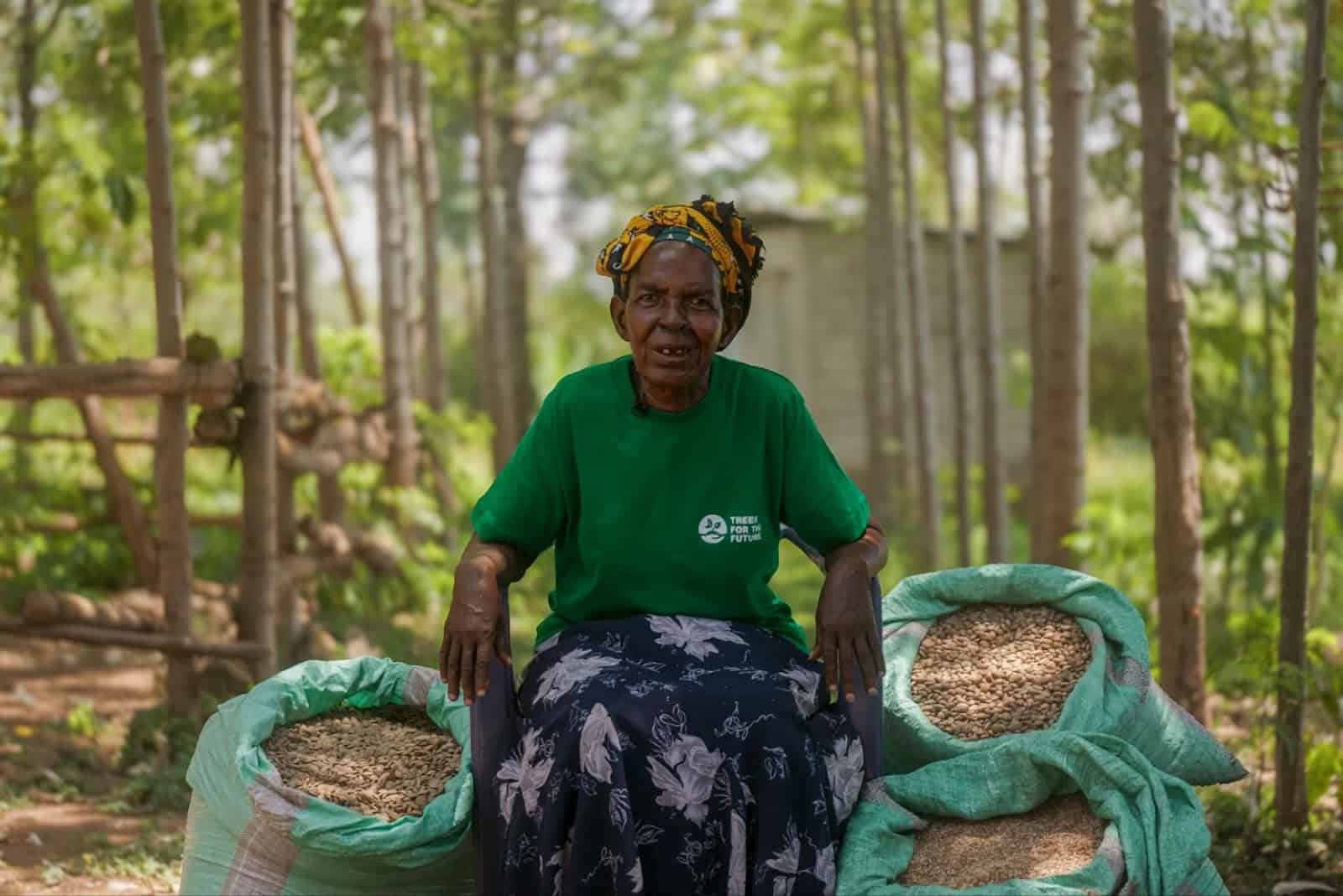As you enter Dorothy Onyango’s home in Homabay, there is a motherly warmth and joy that is felt. You can’t help but marvel at the work she has going on at her farm.
She strolls through her garden, pointing out how the farm has grown since she enrolled in Trees for the Future’s (TREES) Forest Garden program in 2020. (See how far she’s come since we first shared her story in 2022.) Local TREES staff taught Dorothy and other project participants about a sustainable agroforestry technique called the Forest Garden Approach. She was soon able to restore her degraded farmland and provide for her family.
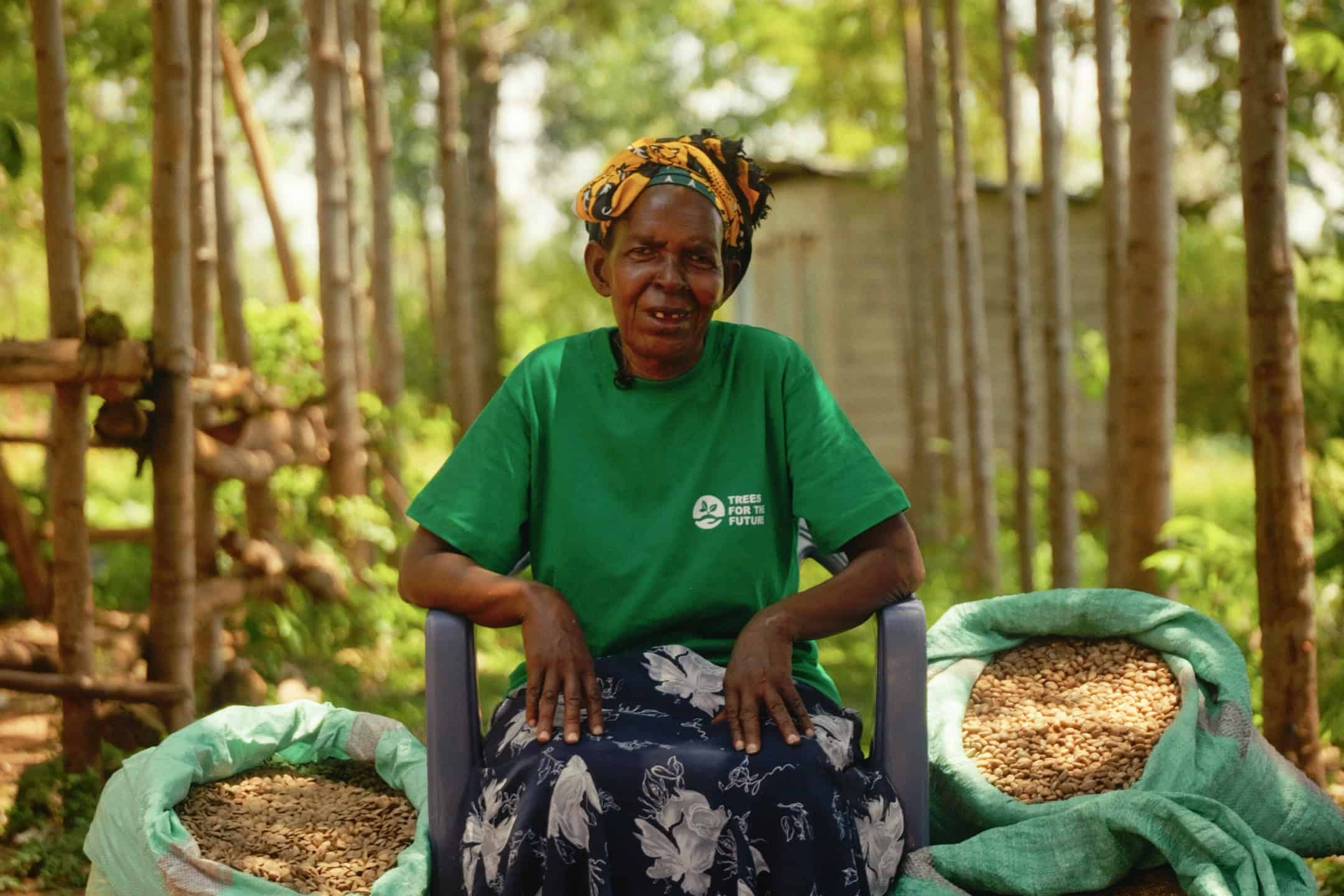
Dorothy Onyango joined TREES’ Forest Garden Training Program in 2020. Today, she has a thriving farm and seed business.
Planting the seeds of success through the Forest Garden Approach
The 60-year-old mother of five has farmed her land for years, but harmful farming techniques left her soil degraded, giving her little yield from the farm. Through the Forest Garden Approach, Dorothy planted thousands of trees to protect her land and planted dozens of crop species to support her family year-round. Her Forest Garden is full of crops to eat and sell each month of the year. She grows traditional vegetables, bananas, avocados, mangoes, oranges, and more.
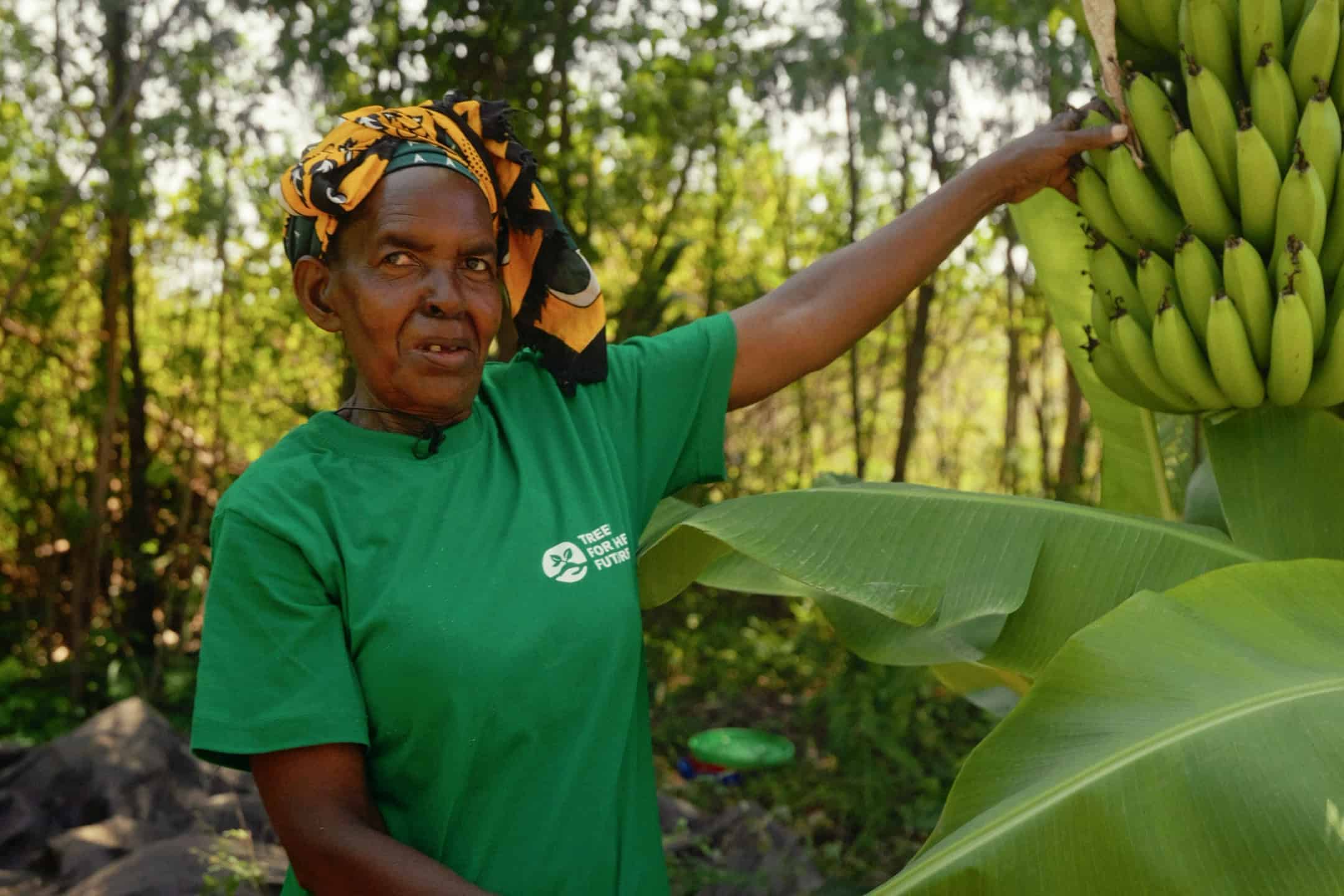
Dorothy is able to harvest seeds from the many different plant species she grows on her land.
Selling more than crops
As she restored her land, she was able to focus more of her energy on additional income opportunities – seed saving has been a game changer for her.
“Before, my farm was only up to a small plot. I did not grow much food where we used to live,” she says. “My family and I have benefitted a lot from the program. Before I did not have other business such as selling seeds and rearing chicken. It opened my eyes and mind to think big and start other businesses.”
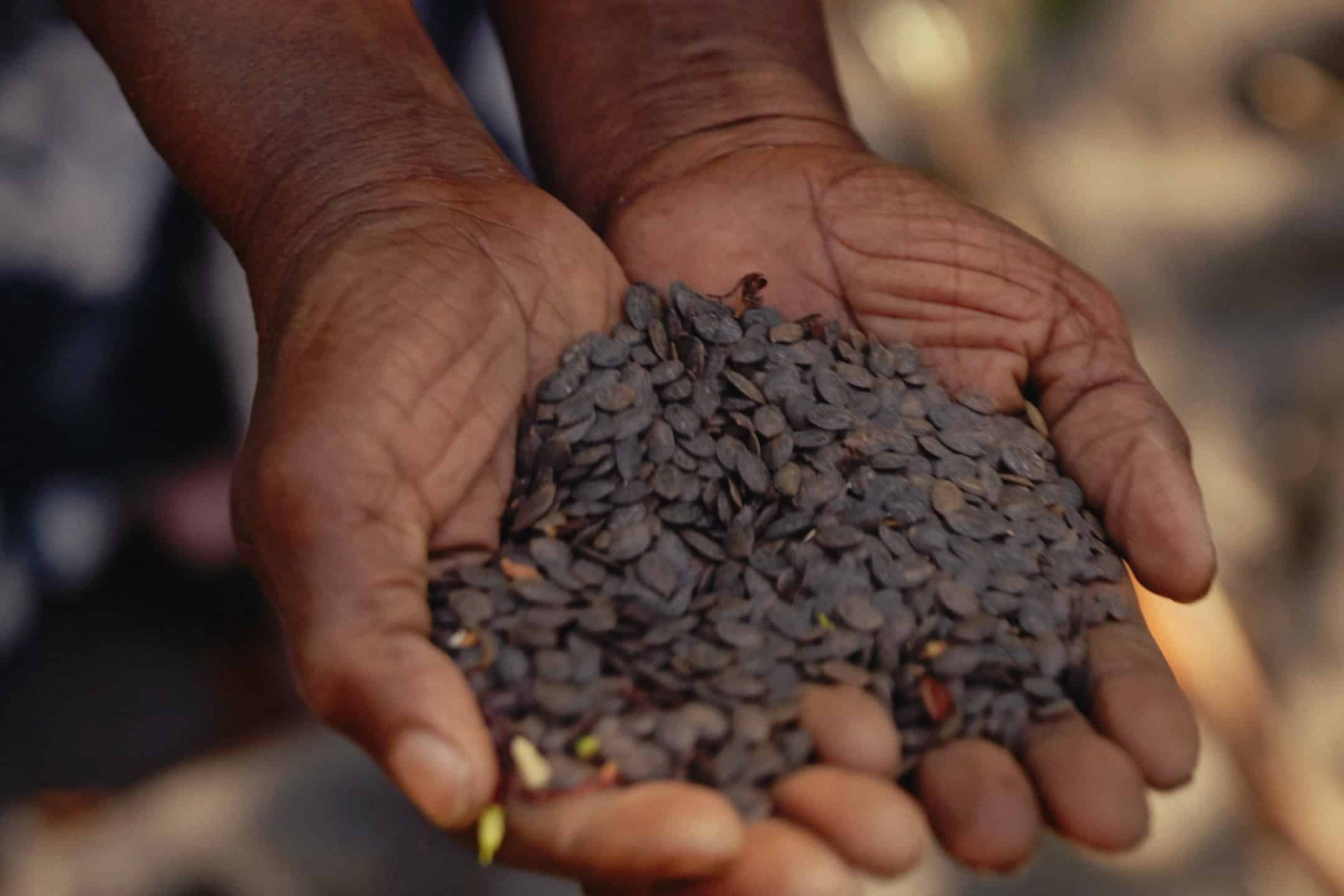
She was one of the first farmers join TREES’ seed saving program and receive training to become a seed vendor.
Seedbanks at TREES
TREES has supplied farmers with seeds since the organization was founded in 1989. The team has always emphasized the need for and importance of seed conservation and availability. In 2022, the TREES team launched a seed saving program in Kenya to improve seed access and expand business opportunities for farmers. The first TREES seed bank opened in Homabay. Dorothy was elated to be among the first group of farmers to join and receive training to become seed vendors.
TREES staff trained the farmers on seed harvesting, collection and how to test for seed germination from the seeds collected before they are accepted at the seed bank. The seed bank standard operating procedure proposes that for the seed to be accepted, it has to be clean without impurities. It also has to pass 75% germination rate for every 100 seeds drawn from the collection.
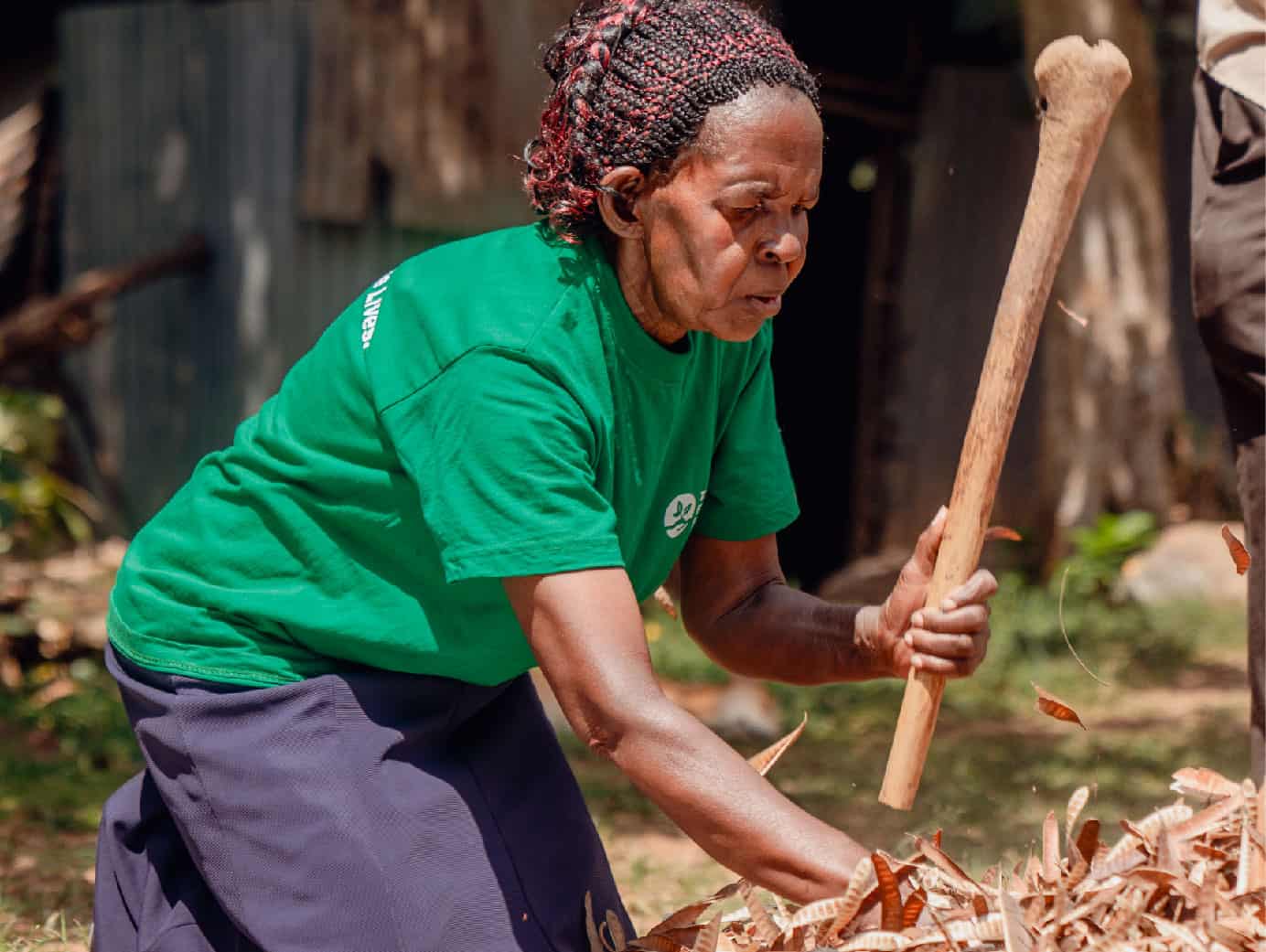
Farmers like Dorothy learned from TREES staff how to harvest, dry, and store seeds from various crops.
Seed saving, prep, and sales
“It takes me three days to prepare the seeds. After harvesting the tree seeds, I dry them in the sun for some time, about two to three days. After that, the sorting, winnowing and packing of the seeds starts. It takes me another three days. Depending on the weather, on average it takes me six to seven days to work on the seeds ready to dispatch to the seed bank.”
She supplies on average 23 kilos of various tree species to the TREES seed bank every month. One of the most prolific seed vendors in the program, Dorothy has supplied over 450 kilos of seeds of various tree species to the seedbank since 2023.
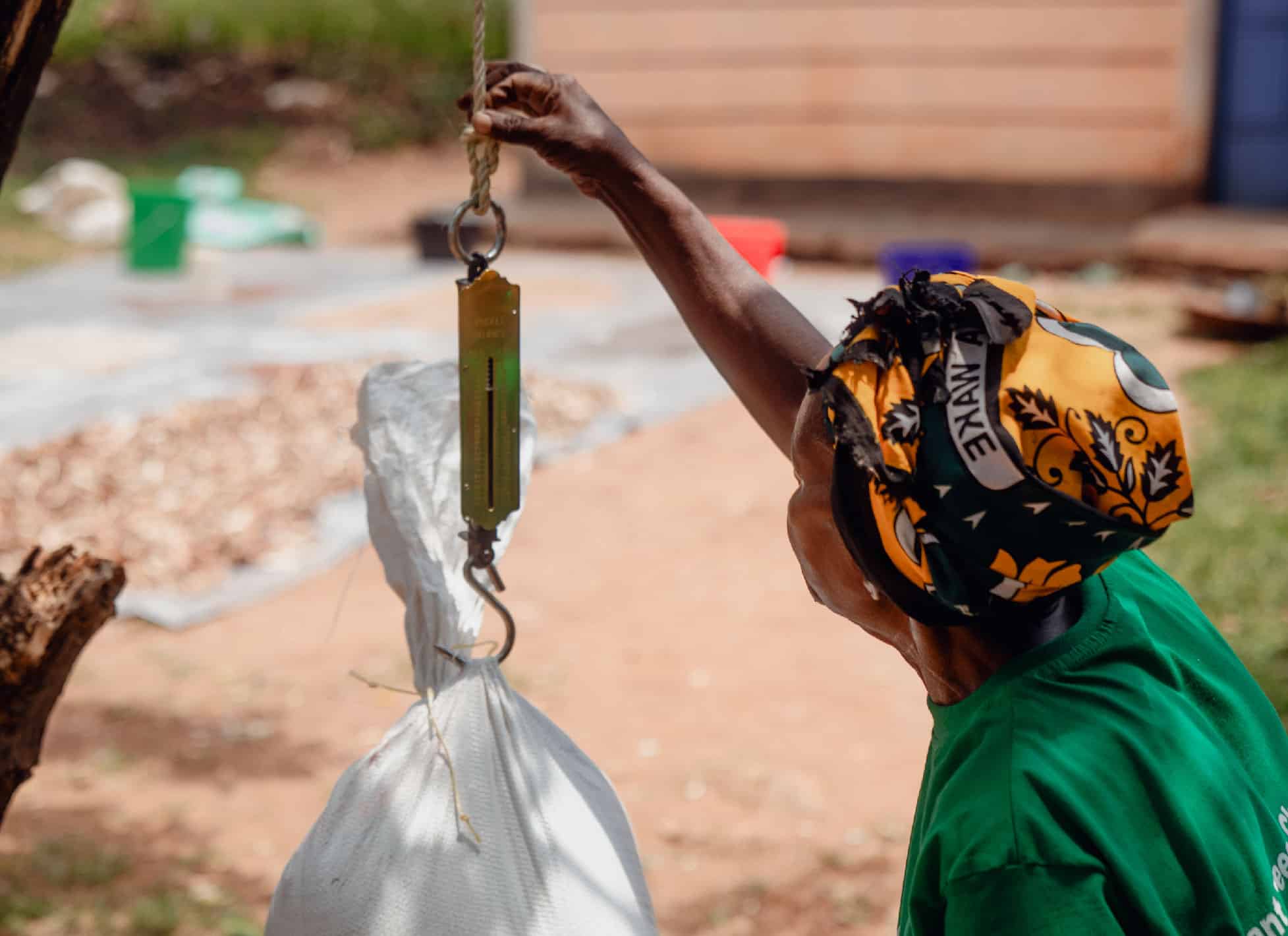
Dorothy has supplied over 450 kilos of seeds of various tree species to the seedbank since 2023.
Dorothy’s “cash cow”
“Whenever I sell the seeds, I get better profit than when I sell the vegetables from the farm. From the tomatoes and vegetables quantity I sell at the market for Ksh, 100 each per kilogram, I get almost double that of vegetable because a kilo of seed is sold at about Ksh, 1800,” she says.
“In as much as I love working with my family on the farm, I delegate the other farm work such as tending to the fruits and vegetable garden to the children but for the seeds, I do it myself. This is my cash cow, and I am keen to keep the quality,” she quips.
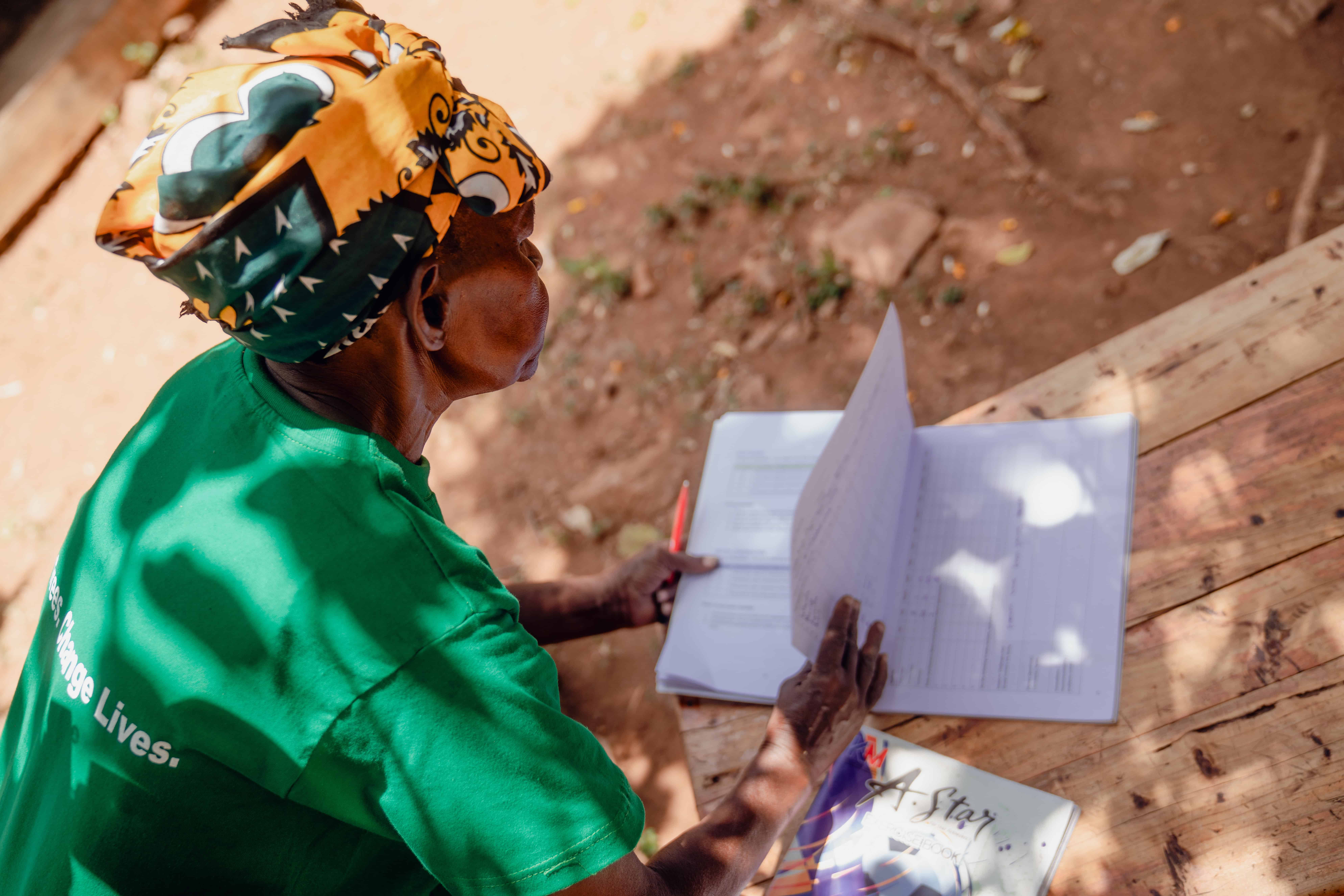
The 60-year-old farmer is now running a profitable business and employing others in her community.
Employing fellow farmers
Because demand for high-quality, affordable seeds is so high, Dorothy’s biggest challenge is keeping up her supply. Fortunately, she is able to contract other TREES Forest Garden farmers to reduce the deficit. She trains her fellow farmers to ensure she can deliver the seed quality required by the seed bank.
“I build trust with the vendors, keeping close contact and visiting their farms often and training them on good seed practices,” she says.
Not only is Dorothy selling seeds for an income, but she’s also helping other farmers increase their profits as well. She beams with joy for the opportunity agroforestry and seed saving has given her, her family, and her fellow farmers.
Looking to the future
All her increased income has helped her invest back into herself and her business. Today, she has a dairy cow and a new chicken coop. The chicken and eggs provide yet another source of income for her and her family.
Dorothy and her fellow farmers recently graduated from TREES’ formal training program in a celebratory graduation ceremony. She is one of the first farmers to graduate from TREES’ Lake Victoria Watershed Carbon Project.
A Legacy that Lives On
Since this story was originally written, we are heartbroken to share that Dorothy Onyango has passed away. Dorothy was a remarkable farmer, entrepreneur, and leader in her community. Her commitment to restoring her land and uplifting others through seed saving, training, and hard work has left a lasting impact on all who knew her.
Dorothy’s Forest Garden continues to thrive. Her son has taken over the farm and seed business, ensuring that her vision and legacy live on. In continuing the work she started, he honors her memory and the powerful example she set for her family, her community, and fellow farmers across the region.
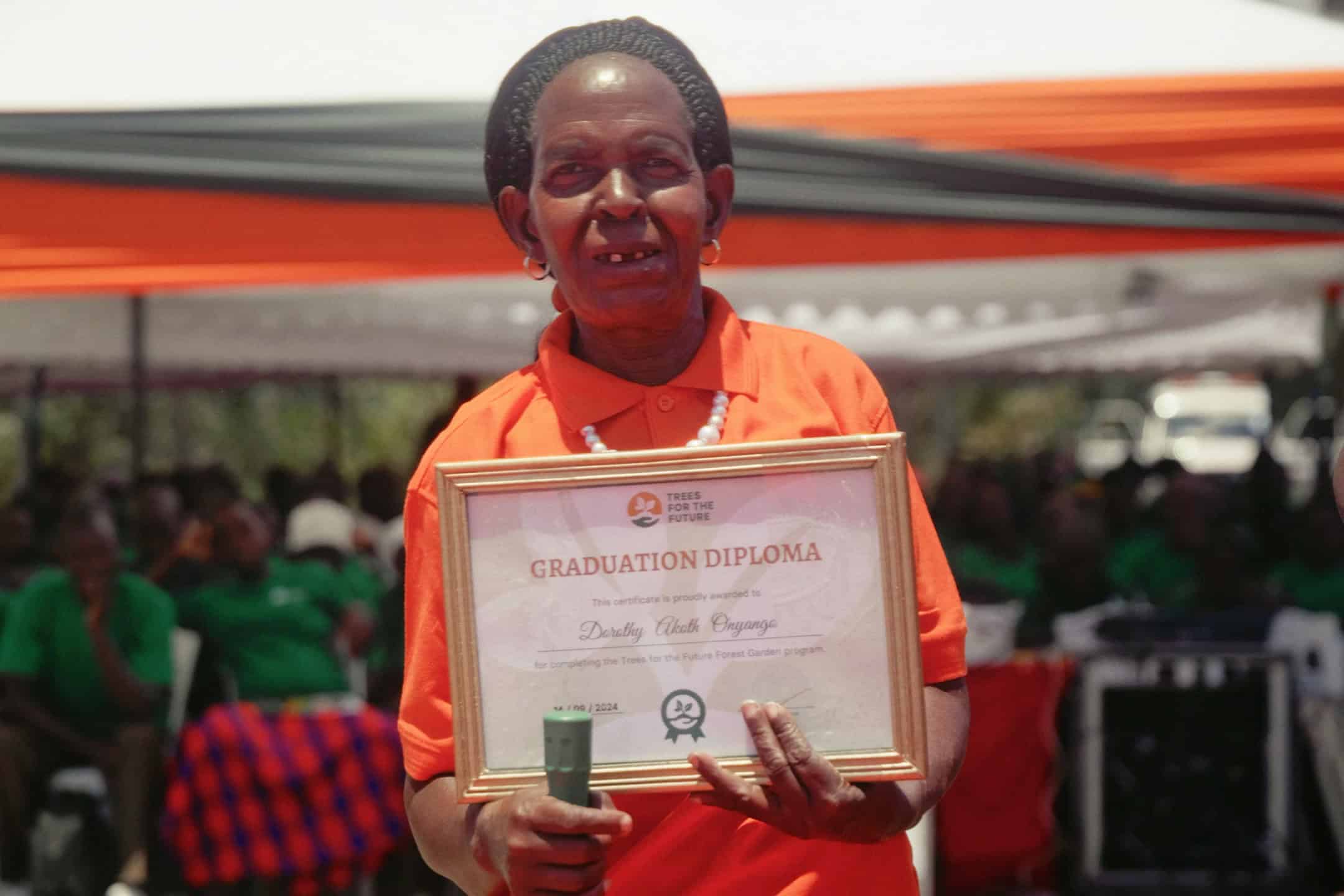
Alongside her fellow Forest Garden farmers, Dorothy graduated from the program in 2024, equipped with the skills and knowledge she needs to succeed long term. (Photo: Catona Climate)
